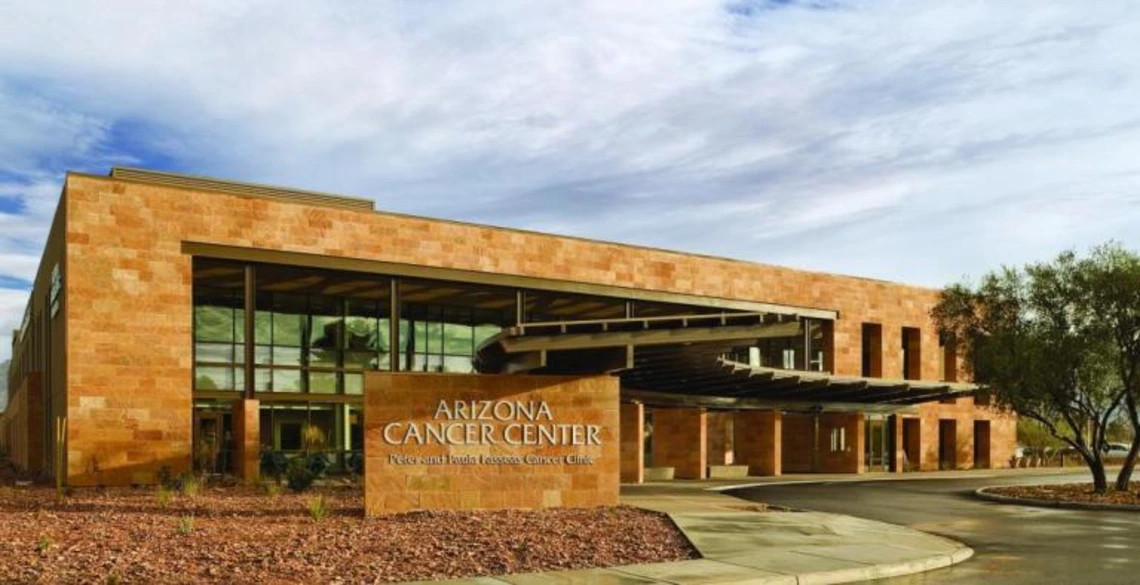BME Faculty Work to Accelerate Cancer Treatment Research
The Cancer Engineering Initiative moves ahead with research on new cancer treatment methods.

The University of Arizona Cancer Center is the central meeting point for engineers, biologists and clinicians conducting research.
The University of Arizona Cancer Engineering Initiative began in fiscal year 2022-2023 with $10.8 million in funding from the state’s New Economy Initiative. Now, it’s forging ahead with new faculty hires and partnerships – realizing the goal of rapidly pioneering cancer treatments with an engineering mindset.
Biomedical engineering faculty are teaming up with experts in biology and 3D printing to expedite research that will give patients and doctors more answers into the causes of cancer cell growth.
One promising technique at the intersection of these fields is growing cancer cells in materials that mimic human organs, giving researchers a chance to test unique factors that may have led to a patient’s diagnosis.
“Cancer cells are heavily influenced by their environment,” said Shang Song, assistant professor of BME and leader of the Song Lab.
Song is an expert in cellular microenvironments, regenerative medicine, and organ-on-chip systems; she’s investigating how body parts – such as brain, breast, prostate, or bone – can stimulate tumor growth.
“Cancer cells can stay dormant when they're not being triggered,” Song said. “I’m asking what nutrients, what physical or chemical cues are in the environment that influence cell behavior.”
Song will expand on microenvironment research with a new faculty member: Alexander McGhee, assistant professor of BME. He leads the McGhee Lab out of the University of Arizona Cancer Center.
“I would like 3D print human organ models made by stem cells or a patient's biopsy – a chunk of healthy organ – infect it with their cancer and then do drug trials to see what drug combination and dose is most efficacious then finally compare that to the treatment received and patient response,” McGhee said.
Learn more about the Cancer Center's research developments here.
